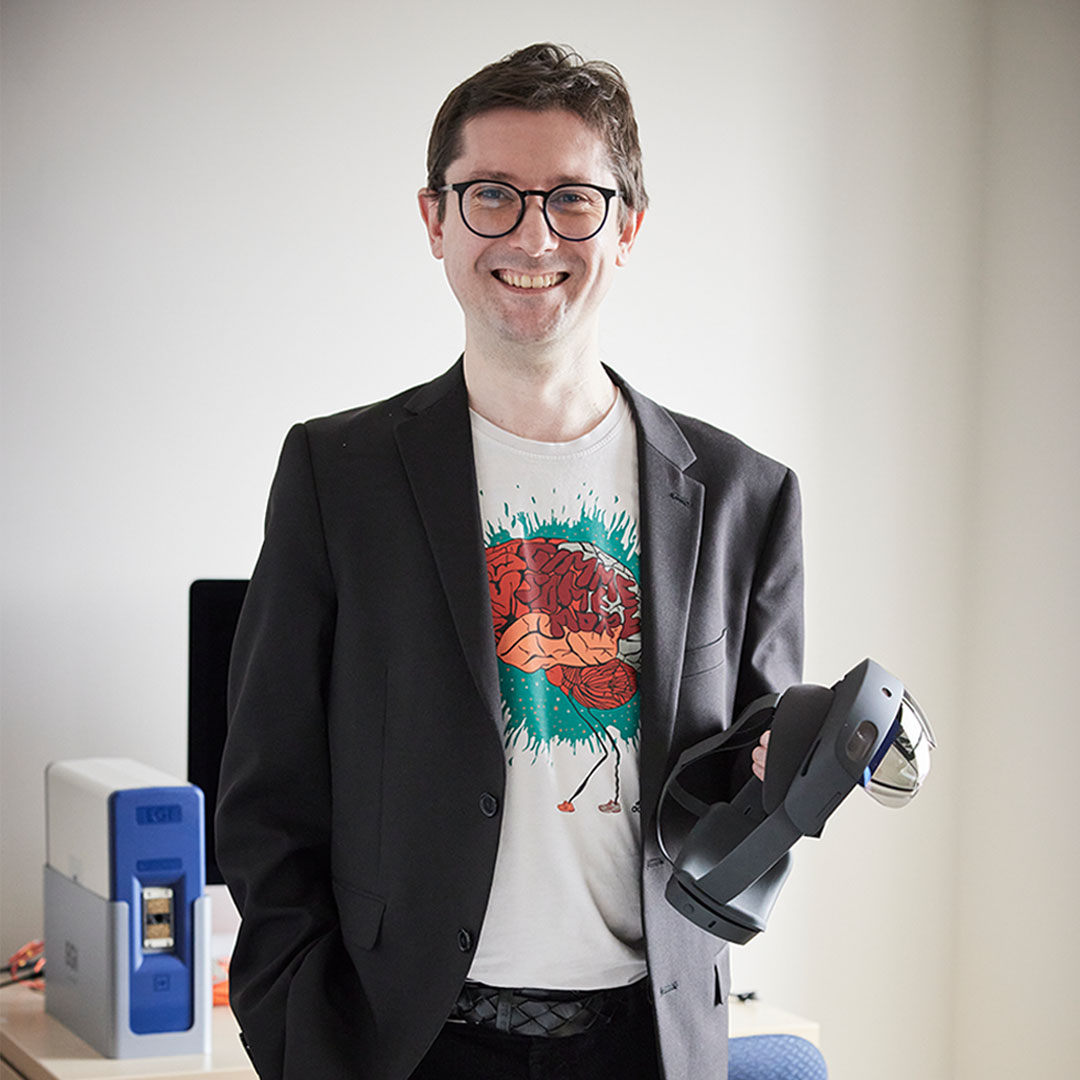A specialist in social neuroscience and artificial intelligence, Dr. Dumas is leading a number of ambitious projects that combine new technologies and digital media to both deepen our understanding of the brain and better support families.
Thanks to your generous gifts, he recently acquired four state-of-the-art electroencephalogram (EEG) machines that will allow his team to study an individual’s brain during social situations. Although neurodevelopmental disorders often affect how a child interacts with others, research in this area has been virtually non-existent due to a lack of suitable technology. With these new EEG devices, Dr. Dumas’ work will be a game changer.
The project that has earned Dr. Dumas the most recognition this year is undoubtedly his mixed-reality video game, Pop’Balloons. The game will be the first objective assessment tool to support an autism diagnosis as currently, clinicians must use a series of criteria.
It’s easy to imagine how useful this tool might be in isolated areas, where access to specialized care is very limited.
“The video game is not intended to replace a psychiatrist or a psychologist, but it may help determine whether a child needs to see one of these specialists. It could also be used to create patient intake profiles, saving valuable time in a healthcare system that’s under enormous strain. Medical teams and patients alike would benefit!”
The video game’s potential is enormous: it could be used to monitor a child with autism between visits to the psychiatrist or psychologist, as these appointments can be more than a year apart. Over the long term, it could even give advice to parents based on their child’s progress.
Quebec families will be the first to benefit from this groundbreaking project, thanks in no small part to generous philanthropic partners like the Fondation Guy Laliberté and the Fondation Famille Léger, who have supported Dr. Dumas as he explores new ways of helping families affected by neurodevelopmental disorders.

